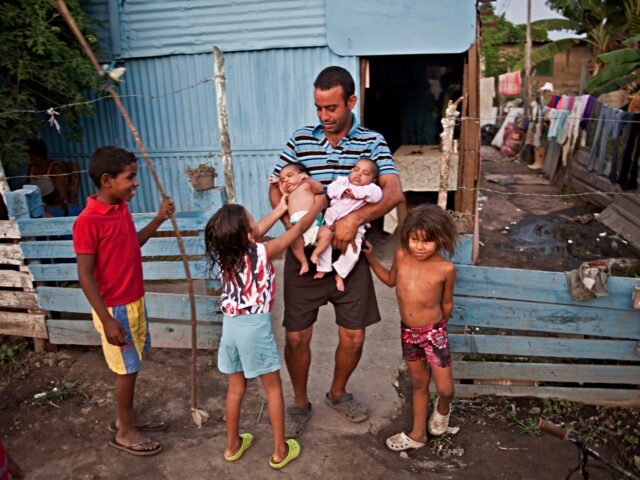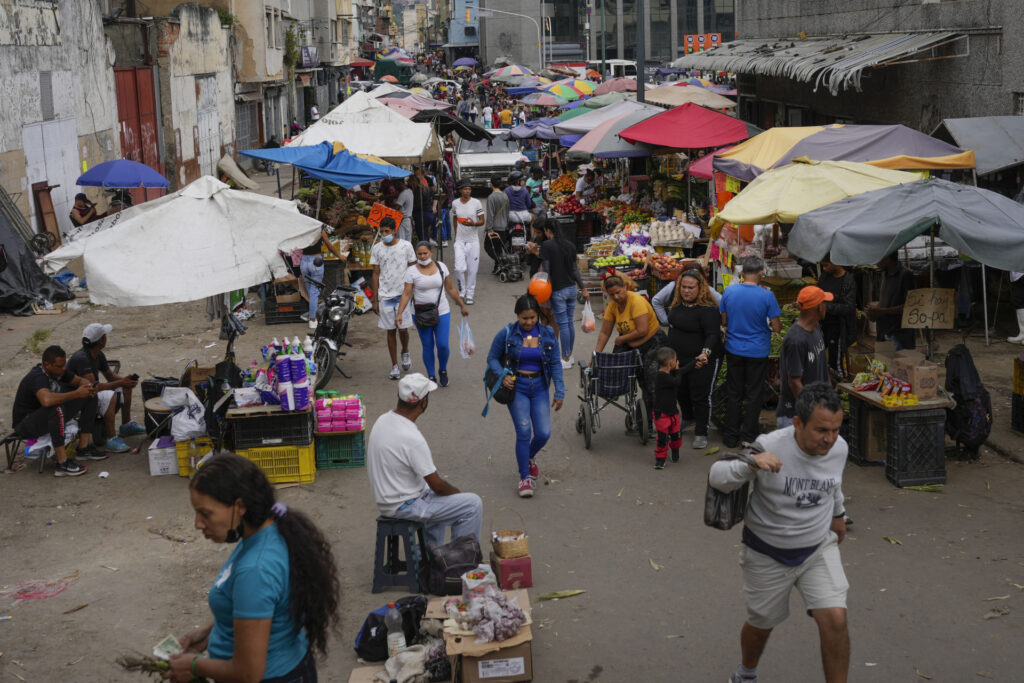Caruzo: My Country Tried Kamala-Style Price Controls — It Led Venezuela to Disaster
U.S. Vice President Kamala Harris is reportedly planning to introduce a price control scheme for food and groceries in America should she be elected – an alarming proposal to hear as a Venezuelan, who experienced the rampant shortages and economic chaos of price controls in the flesh. Listen To Story
I lived through the majority of the past 25 years of the disaster known as Venezuela’s socialist revolution, having only been able to flee from Venezuela a couple of months ago. Throughout the past 20 years or so, late socialist dictator Hugo Chávez and then his successor, Nicolás Maduro, signed off on several iterations of price controls in the same style as Harris’s reported policies, each one more disastrous than the last.
The prospect of buying things “cheaper” due to price controls may seem enticing. Who wouldn’t love to save a couple dollars here and there, especially under Bidenflation, which every single one of my American friends has been slammed by. But roughly two decades of price controls in Venezuela ultimately gave forth to severe shortages, rationing, corruption, and just unpleasant experiences and misery all around.
Get ready for the "joy" of bread lines!
— Breitbart News (@BreitbartNews) August 15, 2024
Don't exceed your coconut rations!
Black markets are so brat! pic.twitter.com/sU9IqvBXmN
It got so bad that the Maduro regime, while still officially implementing price controls, has quietly stopped enforcing them for the most part. They have not publicly said why but, maybe, they finally realized how disastrous it is.
Venezuela’s price control disaster is a two-decades-old tale that began in early 2003. At that time, Hugo Chávez established severe price controls and imposed strict profit margins on meat, chicken, cheese, sugar, coffee, beans, milk, and other items. I remember that, for a time, the plan seemed to “function,” but this only lasted for so long and, by the late 2000s, shortages of the regulated items were commonplace. The price controls, together with inflation, led to situations where a kilogram of onions was more expensive than a kilogram of meat.
It’s very simple, really: who would want to produce and sell items at a loss? And if you do, how long can you sustain that? Not for long.
By 2011, Chávez doubled down on price controls. In addition to what was already subject to price regulations, Chávez added water, fruit juice, soap, bleach, dishwasher soap, detergent, toiletries like shampoo soap and deodorant, toilet paper, and even diapers to the list.
The new price control scheme sought to punish “capitalist” traders who “speculated” against the people by further imposing disciplinary actions should they disrespect the profit margins established by the socialist regime. Chávez said that the regulatory scheme was a new mechanism for the “transition to socialism” and a socialist economy that puts an end to the “vices of capitalism.”
Hugo Chávez died in 2013, but unfortunately, the price controls did not die with him.
If Chávez had doubled down on price controls before dying, Maduro tripled down on what he inherited. The rest is a tale you may already know: severe ID-based rationing of the regulated items and the implementation of fingerprint scanners to further clamp down on regulations, and just sheer socialist absurdity.
File/Customers walk through a public market in the Quinta Crespo neighborhood of Caracas, Venezuela, Dec. 11, 2022. Half of Venezuelan households do not receive enough income to cover the Food Basket, which puts them in a situation of extreme poverty, according to the 2023 Living Conditions Survey released Wednesday, March 13, 2024. (AP Photo/Matias Delacroix, File)
Read More Here: Breitbart






